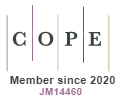“We have to reinvent us”: teachers and physical education teaching during the COVID-19 pandemic
DOI:
https://doi.org/10.5585/dialogia.n36.18659Keywords:
Teaching, Physical Education, DICT, Pandemic, Covid-19Abstract
In the scenario of rapid transformation and high uncertainty caused by the Covid-19 pandemic, this research identified the challenges and learning of Physical Education teachers related to remote education. For this, a focus group was held with five teachers from private schools. The challenges faced by teachers were: feelings of fear and anxiety; adaptation to online classes and the use of technologies in teaching; inhibiting students to open the cameras; find suitable activities for remote education; the difficulty in evaluating students; the lack of support from some families. Regarding learning, they indicated: learning how to use TDICs; intensifying collaboration with colleagues; the adaptation of methodological strategies and the use of creativity. Emergency remote teaching created new challenges for Physical Education teachers, but it also provided learning opportunities, including the use of TDICs in teaching.
Downloads
References
ANVERSA, Ana Luiza B. et al. A prática reflexiva na formação de professores de educação física na modalidade EaD. Revista Brasileira de Ciência e Movimento, v. 25, n. 2, p. 122-136, 2017.
BIANCHI, Paula; PIRES, Giovani de Lorenzi. Cultura digital e formação de professores de educação física: estudo de caso na Unipampa. Movimento, Porto Alegre, v. 21, n. 4, p. 1025-1036, 2015.
CRUVINEL, Fernanda et al. A dinâmica, os principais problemas e as qualidades no desenvolvimento de um curso de licenciatura em Educação Física na modalidade à distância. Pensar a Prática, Goiânia, v. 18, n. 3, p. 1-15, jul./set. 2015.
DARLING-HAMMOND, Linda et al. A elaboração de programas de formação de professores. In: DARLING-HAMMOND, Linda; BRANSFORD, John. (Org.). Preparando os professores para um mundo em transformação. Porto Alegre: Penso, 2019, p. 333-377.
FEVORINI, Luciana Bittencourt; LOMÔNACO, José Fernando Bittencourt. O envolvimento da família na educação escolar dos filhos: um estudo exploratório com pais das camadas médias. Psicologia da Educação, São Paulo, n. 28, p. 73-89, 1o sem. de 2009.
GATTI, Bernadete Angelina. Grupo focal na pesquisa em ciências sociais e humanas. Brasília, DF: Liber Livro, 2012.
GODOI, Marcos et al. O ensino remoto durante a pandemia de covid-19: desafios, aprendizagens e expectativas dos professores universitários de educação física. Research, Society and Development, v. 9, n. 10, p. 1-19, 2020.
GUIMARÃES, Valter Soares. O grupo focal e o conhecimento sobre identidade profissional dos professores. In: PIMENTA, Selma Garrido; GHEDIN, Evandro; FRANCO, Maria Amélia (Org.). Pesquisa em educação: alternativas investigativas com objetos complexos. São Paulo: Loyola, 2006, p. 149-163.
HAY, Peter J. Assessment for learning in physical education. In: KIRK, David; MACDONALD, Doune; O’SULLIVAN, Mary. (Org.). The handbook of physical education. London: Sage, 2006, p. 312-325.
HAMMERNESS, Karen et al. Como os professores aprendem e se desenvolvem. In: DARLING-HAMMOND, Linda; BRANSFORD, John. (Org.). Preparando os professores para um mundo em transformação. Porto Alegre: Penso, 2019, p. 306-332.
HODGES, Charles; MOORE, Stephanie; LOCKEE, Barb; TRUST, Torrey; BOND, Aaron. The Difference Between Emergency Remote Teaching and Online Learning. March 27, 2020. Recuperado em: https://er.educause.edu/articles/2020/3/the-difference-between-emergency-remote-teaching-and-online-learning Obtido em: 22 de agosto de 2020.
INSTITUTO PENÍNSULA. Relatório de pesquisa: Sentimento e percepção dos professores brasileiros nos diferentes estágios do coronavírus no Brasil. Estágio intermediário, maio de 2020a. Disponível em: https://institutopeninsula.org.br/wp-content/uploads/2020/05/Covid19_InstitutoPeninsula_Fase2_at%C3%A91405-1.pdf Consulta em: 24 de agosto de 2020.
INSTITUTO PENÍNSULA. Relatório de pesquisa: sentimento e percepção dos professores brasileiros nos diferentes estágios do coronavírus no Brasil. Estágio controlado – agosto de 2020. São Paulo: Instituto Península, 2020b. Disponível em: https://institutopeninsula.org.br/wp-content/uploads/2020/08/Sentimentos_-fase-3.pdf; Acesso em: 5 de outubro de 2020.
LAZZAROTTI FILHO, Ari et al. (2015). A dinâmica, os principais problemas e as qualidades no desenvolvimento de um curso de licenciatura em educação física na modalidade à distância. Pensar a Prática, v. 18, n. 3, p. 636-50, 2015.
LEIRO, Augusto Cesar Rios; ARAÚJO, Allyson Carvalho; SOUZA, Dandara Queiroga de Oliveira. Mídias e tecnologias no contexto da educação física escolar. In: DORENSKI, Sérgio; LARA, Larissa; ATHAIDE, Pedro (Org.). Comunicação e mídia: história, tensões e perspectivas – Ciências do esporte, educação física e produção do conhecimento em 40 anos do CBCE. Natal-RN: EdUFRN, 2020, p. 57-74. Disponível em: http://www.cbce.org.br/colecao-40anos.php; Acesso em: 20 de agosto de 2020.
LISBOA, Mariana Mendonça; PIRES, Giovani de Lorenzi. Tecnologias e a formação inicial do professor de educação física: reflexões sobre a educação a distância. Atos de pesquisa em educação, Blumenau, v. 8, n. 1, p. 60-81, 2013.
LÓPEZ-PASTOR, Victor Manuel et al. Alternative assessment in physical education: a review of international literature. Sport, Education and Society, v. 18, n. 1, p. 57-76, 2013.
PAILLÉ, Pierre; MUCHIELLI, Alex. L’analyse qualitative en sciences humaines et sociales. Paris: Armand Colin, 2012.
PENNEY, Dawn et al. Curriculum, pedagogy and assessment: three message systems of schooling and dimensions of quality physical education. Sport, Education and Society, v. 14, n. 4, p. 421-442, 2009.
VAREA, Valeria; GONZÁLEZ-CALVO, Gustavo. Touchless classes and absent bodies: teaching physical education in times of Covid-19. Sport, Education and Society, 2020. pp. n/a. https://doi.org/10.1080/13573322.2020.1791814
WOODS, Peter. Aspectos sociais da criatividade do professor. In: NÓVOA, Antonio (Org.). Profissão professor. 2 ed. Porto: Porto Ed., 1995, p. 125-153.
UNESCO. Impacto da COVID-19 na educação. 2020. Disponível em:
http://pt.unesco.org/covid19/educationreponse; Acesso em: maio de 2020.
Downloads
Published
How to Cite
Issue
Section
License
Copyright (c) 2020 Dialogia

This work is licensed under a Creative Commons Attribution-NonCommercial-ShareAlike 4.0 International License.
- Abstract 7626
- PDF (Português (Brasil)) 5461






